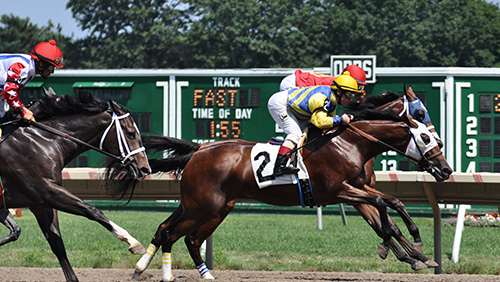After the U.S. Supreme Court agreed with New Jersey in May 2018 and declared the Professional and Amateur Sports Protection Act of 1992 (PASPA) null and void, a horserace track in New Jersey went after the major North American sports leagues, arguing that they had prevented it from earning justified revenue. Monmouth Park set out to try and recuperate its losses by suing the sports leagues, claiming millions of dollars in lost earnings. While some may have viewed the lawsuit as frivolous, the courts apparently don’t think so as an appellate court has sided with the track.
 Monmouth Park, through the owner of the land where it sits, the New Jersey Thoroughbred Horsemen’s Association (NJTHA), is suing the NCAA, the NFL, the NHL, the NBA and MLB for obstructing sports betting. If it is able to prove its case, it hopes to be able to collect as much as $150 million. According to the Courthouse News Service, the fight continues and the judges involved are willing to let the case take its course.
Monmouth Park, through the owner of the land where it sits, the New Jersey Thoroughbred Horsemen’s Association (NJTHA), is suing the NCAA, the NFL, the NHL, the NBA and MLB for obstructing sports betting. If it is able to prove its case, it hopes to be able to collect as much as $150 million. According to the Courthouse News Service, the fight continues and the judges involved are willing to let the case take its course.
Attorney Ronald Riccio, who is representing the NJTHA as part of the McElroy Deutsch law firm, told the U.S. Court of Appeals for the Third Circuit judges this week, “For six years the leagues used what we now know as an unconstitutional statute. And it almost put Monmouth Park out of business.”
The fight began in 2014 when New Jersey tried to update state laws to override PASPA. The sports leagues fought the move, taking their case to court in order to find injunctive relief. However, despite their temporary victory, the leagues continued to engage in, and profit from, sports gambling even though they argued that it was illegal per PASPA. Riccio adds, “NJTHA provided uncontroverted evidence of the Leagues’ double dealing. The district court repeatedly ignored the evidence that the Leagues procured injunctive relief against NJTHA in bad faith.”
When the injunction was issued, the courts ordered the leagues to post a bond in the amount of $3.4 million. The bond was meant to cover any potential losses in the event the court’s decision was later found to be wrong. Given that PASPA was defeated last year, no one could argue that the court had made a mistake. The attorney asserts, “NJTHA had every reason to believe that it would be protected by the bond the district court had ordered. But when it came time for the district court to enforce the bond it had previously ordered the Leagues to post, it declined to do so.”
The NJTHA wants to be given the bond, as well as additional damages. While there appears to be a solid case for the association to receive the $3.4 million, convincing the courts that it deserves $150 million in damages may be a little more of a challenge.





